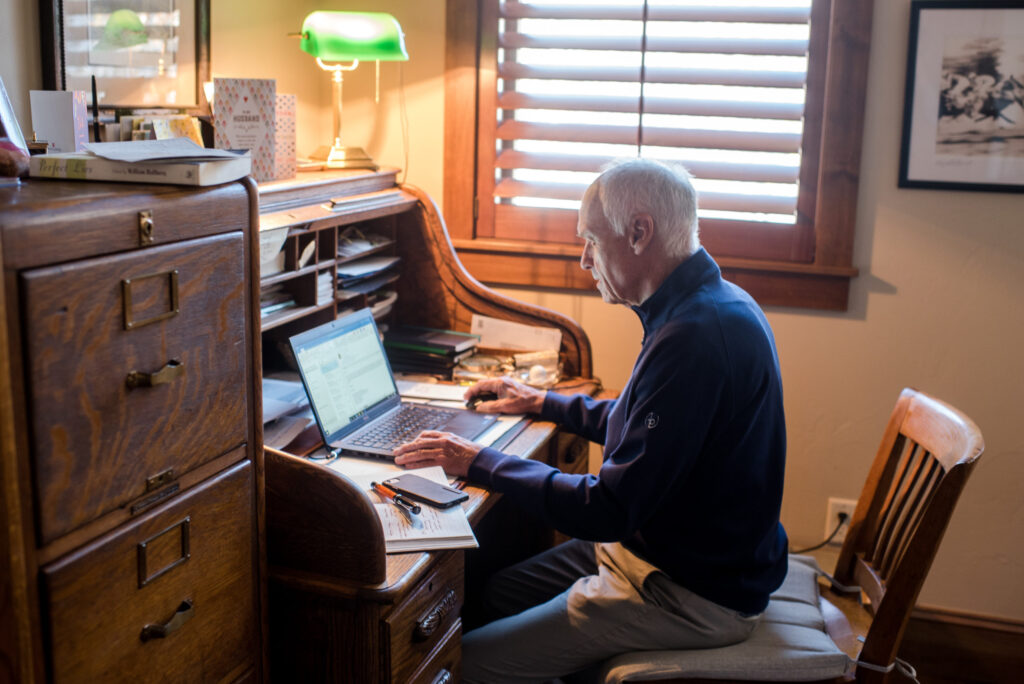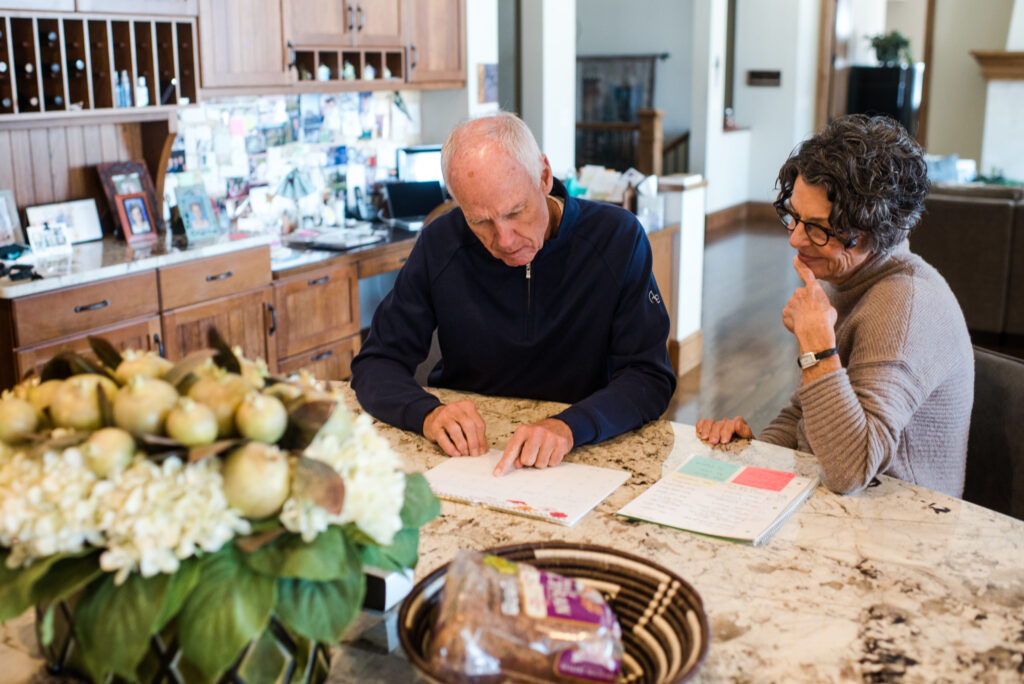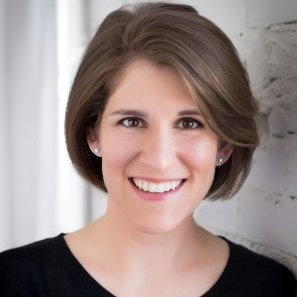To hear Doug and Cindy Smith talk about their long life together—they’ll celebrate their 50th wedding anniversary in the spring of 2021—is to be reminded that human flourishing happens, over and over again, at the intersection of faith and work. Doug, a longtime engineering executive who is now the associate dean of the University of Colorado Boulder’s College of Engineering & Applied Science, and Cindy, a counselor and teacher with clients all over the world, discovered early in their adult lives that “to be known outside of our church community is for our faith to be known, too,” Cindy says. “Sometimes our faith was articulated, sometimes not, but it was always lived out. And where are you outside of your church? You’re at work—whether you’re raising kids, as I was primarily, or going to the office and leading a lot of people, as Doug was.”
The seeds of their theology of work sprouted in surprising soil: the 1960s in America. “We were children of that era, so we learned a deep need for authenticity,” Doug says. “That means, I’m the same person no matter where I am or who I’m with.” And for the Smiths, those parameters—place and people—would change frequently over the many decades of their working lives. What wouldn’t change was their belief that work is an important place where believers live out their faith and love and serve their neighbors.
With an undergraduate degree in civil engineering and a master’s from CU Boulder in civil and environmental engineering, Doug began his career working for the city of Boulder. He served as the public utilities director and then moved into consulting engineering for Black & Veatch in Denver. After finishing his law degree at the University of Denver, Doug got transferred to Tampa, Florida. Meanwhile, Cindy, who has an undergraduate degree in education and two master’s degrees—one in education and the second in clinical social work—worked early on as an adjunct faculty member at what is now Colorado Christian University before Doug’s new job prompted their move to Florida. By that time, the Smiths had three children.

“Transitions are hard,” Cindy says, adding that she mourned the loss of her part-time work in a faith-based school when the family moved to Florida. “Personally and professionally, they can unravel you, but I can look back and see how God’s hand was on us.” She found a new job she loved, working at a nonprofit Christian counseling center, while Doug took on ever-greater leadership roles at his firm—until one day, the company offered him a position as the president of its water division for Europe, Africa, the Middle East, Central Asia, Australia, and New Zealand. The promotion meant a move to London.
The couple made a tough choice: Doug would move to London, and Cindy would stay with their kids—the second of whom had a year left in her high school education. When their daughter graduated, Cindy and their youngest child, who was in sixth-grade, moved to London. “[In those 18 months], I would generally spend three weeks in London, and then fly home to Tampa for a week,” Doug says. “It was far from ideal.” When their daughter graduated, Cindy and their youngest son, Garrett, hopped the pond with some trepidation and sadness. “I went to London just dragging my feet,” Cindy says. “The job at the counseling center was the combination of everything for me: my faith, my gifts, a community I loved. And yet, by God’s sovereign grace, when we got to England, I found another place to serve and shape people.” At her son’s school, the American School in England (TASIS), Cindy participated in and eventually led the parent organization, helping expats—particularly “trailing spouses,” the partners who follow their spouses to London—adjust to a new place and face the losses of leaving their home countries.
For his part, Doug was busy turning around two UK businesses his company had bought and leading hundreds of people—work he clearly relished and in which he excelled. “My faith and values spoke in the ways I cared for people,” he says. Even as the company grew by a factor of four in seven years, Doug prioritized servant leadership.
The couple returned to Boulder in 2004, and Doug took an executive position with Tetra Tech, a publicly traded company. He reflects on that season of his life as “the most stressful part of my life ever,” as he plodded through the 2008–09 financial downturn and laid off hundreds of people. By 2012, he says, “I was toast.” He crafted a transition plan and left. “I was 63 and not quite ready to retire.”
At about this time, Doug recalled an article about faith and work that he had read years earlier. As he searched online for the publication—now a book called Believers in Business by Harvard professor Laura Nash—he stumbled upon Tim Keller and Katherine Leary Alsdorf’s work Every Good Endeavor. Ideas in the book—that the gospel gives meaning to our work; that God cares deeply about our work; and that in our work, we participate in God’s redemption of the world—articulated all of the things Doug and Cindy had believed and learned as they worked in all the places God had put them.
Not long after, Doug met Jeff Haanen, who was in the early days of establishing Denver Institute for Faith & Work—and Doug and Cindy knew almost immediately that this would be an organization in which they’d invest their time and resources in this next season of their lives. “A theology of work shows you how to integrate who you are, what you do, and Who you belong to,” Doug says. “Without it, work can swallow you up.”

Early in his life, Doug says, he knew generous giving was one of his spiritual gifts. “I discovered that truth when I had almost nothing to give,” he says. “But Cindy and I developed principles of giving early on: You give where you’re engaged and involved.” Doug served on the DIFW board early in the organization’s life and found, he says, an intellectual and spiritual home there. “There has been no other place that I found the kind of fellowship around theology and thought. I want other people to know that fellowship, that kind of intellectual and spiritual unity with fellow Christians.”
Today, Doug works as an associate dean at CU Boulder, where students often seek him out for mentorship and counsel, he says, and Cindy runs cross-cultural training for Young Life leaders and returns annually to TASIS to teach seminars to new expats trying to find their way. “We’ve had different work lives that are obviously tied together,” Cindy says. “I’ve watched Doug work all his life, be visionary, out in front, protecting and leading, sometimes being a target. It’s a gift now, toward the end of his work life, to see him make meaning of all that. How blessed are we? At this point in our lives, we see that God didn’t waste any of our experiences, and even now, He lets us be part of this thing—Denver Institute—that brings such goodness and truth to light.”

